Vocation Stories
Dr. Ryan Anderson
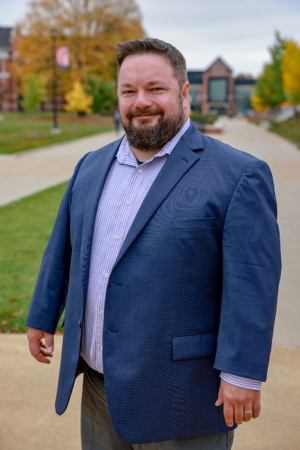
Professor of Business Administration
I believe that one’s vocation is a result of their past experiences and yet it transcends where they have been. It’s both a calling and a professional pathway. My own vocation has been a result of many fortuitous moments. Being a professor was never on my professional radar growing up. My path to becoming a professor was a result of many small moments and a couple of larger moments. The irony of life is that at that moment, I had no idea how important those events would become in finding my professional north star.
One of those formative moments was when I applied for a job as an adjunct professor for an International Trade class. By the second night of class, I knew that teaching was what I wanted to do for the rest of my career. A few months later, I found out that my job at Hewlett Packard would be ending in about a year. This was the opportunity for me to make a career switch.
My original motivation for applying for the adjunct job was simply to pick up some extra income to help pay for my travel addiction. I had no idea that applying for a part-time job would ultimately lead to a completely new professional journey that ultimately aligned my call to give back to society with my career. Don’t be afraid to take a risk and try something new; it may take you to some unexpected places.
Sara Anderson
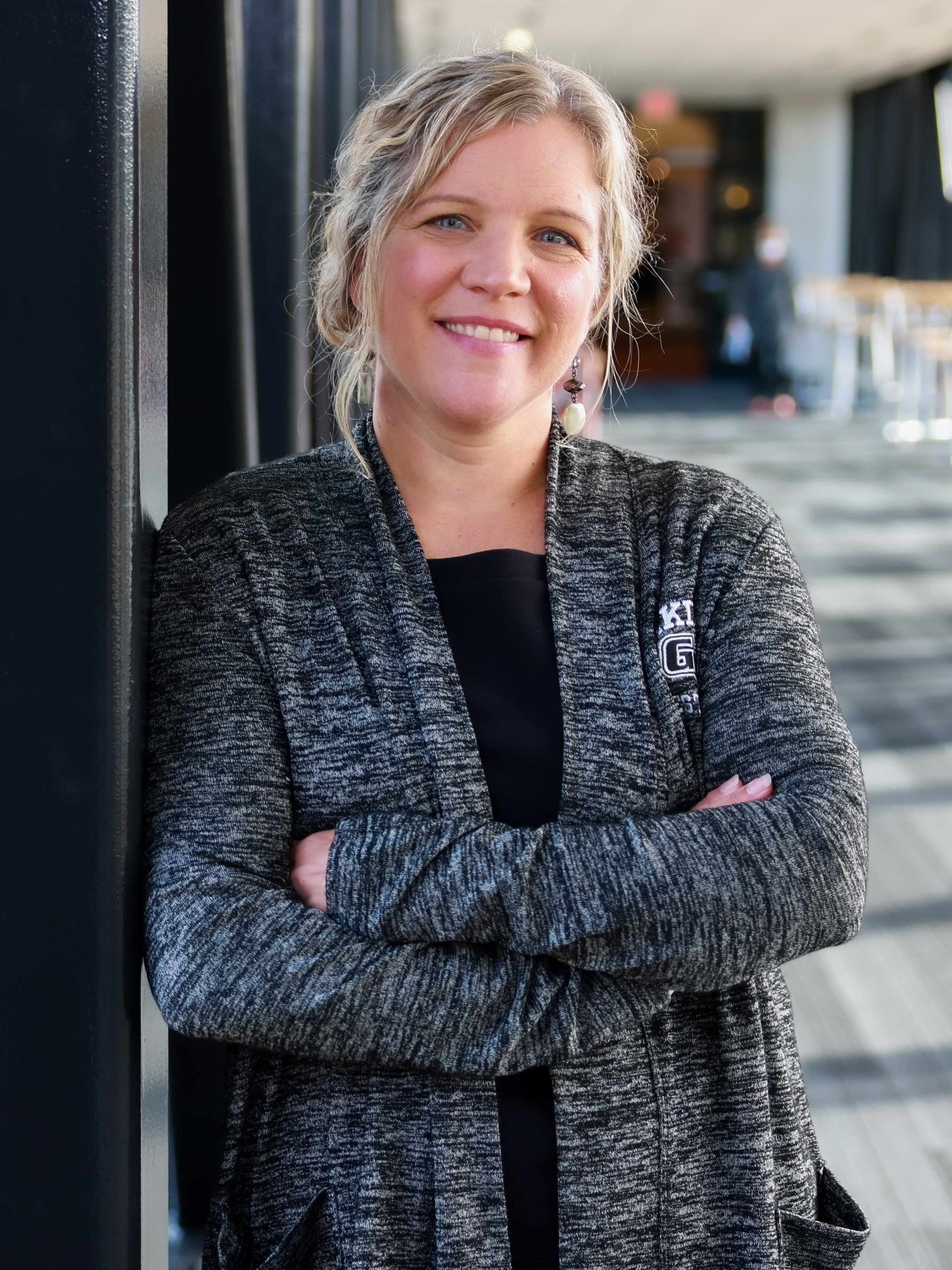
Assistant Director of the Career Center & Director of The Jordan Project
Finding and living my vocation has been all about exploration, learning, unlearning and “locking in” to a project or goal. Some things were easy to identify in this journey: I loved children and education, music and singing. Others required trying new things to see if they fit with my strengths and motivations.
With experiences and opportunities, I make a habit of locking into something I want to learn and then following through until I’m satisfied with the outcome. One example of this was when our family began exploring ways to assist children and families in accessing education and basic needs. I quickly learned there were multiple models for assisting communities – some more sustainable and empowering than others. “Locking in” to an organization that met my expectations meant choosing a community-based model. This choice opened a world of opportunity and allowed me to travel and meet the needs of others. My family and I helped communities in multiple countries, and I was able to engage in international community and meet those doing the good work on the ground.
Unlearning is an interesting concept, right? I now recognize that an important part of living my vocation is just that…questioning what I have been taught, and checking if the things I have believed are true. Unlearning means realizing some things taught to me growing up may not be true to my values.
Living my unique vocational journey involves intentional exploration, openness, and humility. Sometimes it requires all of my energy and can lead to frustration. My goal is to keep trying, learning, and using what I have experienced to build on, for the next opportunity.
My advice – be open and curious as you begin to define and follow what vocation means for you. If you ever want to share your journey with me – please reach out! I’m always up for a life conversation.
Dillon Bauer
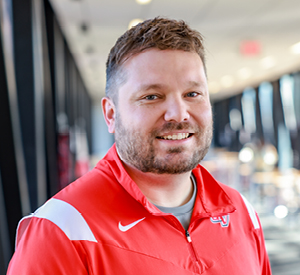
Completion Coach with GV Complete
In interviews, we are often asked about our journey into higher education. While it may seem like just a story, my path has been marked by numerous challenges. My passion for cooking ignited during my early high school years. I reveled in creating in various artistic mediums, and cooking felt like the perfect outlet. With a belief that the world needed skilled chefs, my creativity found a natural fit in the culinary arts. Competing nationally in high school competitions, I earned several culinary scholarships. Even today, many from my hometown still imagine me cooking in a five-star restaurant.
However, my career path diverged from culinary arts when I realized that my true calling lay elsewhere. While I believe I would have thrived as a chef professionally, I understood that my vocation encompassed more than just a career. My life's passion revolves around helping and caring for others, listening to their stories, and improving their lives. Cooking brought me joy because it allowed me to create for others, brightening their day with my food.
So, why am I not a chef in a five-star restaurant? It boils down to my understanding of calling. While a career is a significant part of life, I learned from a young age the importance of family and being present. My purpose centers on being a good husband and father, in addition to pursuing a fulfilling career. While I respect that parents working in restaurants can balance both, I knew that a culinary career would require significant sacrifices, potentially compromising my priorities.
For me, the distinction between career and vocation is clear. While being a father is not a career, it is a calling I would never compromise on when choosing a job that aligns with my passion. It forms a crucial part of my life's vocation. Reflecting on a TED talk I watched, I realized I would have faced moments in my culinary career where I had to sacrifice important family time for work. To me, vocation represents the harmony between work and life, ensuring satisfaction and happiness in everyday endeavors. It provides meaning and a sense of making a positive impact on the lives we touch.
Dr. Cathy Beck-Cross
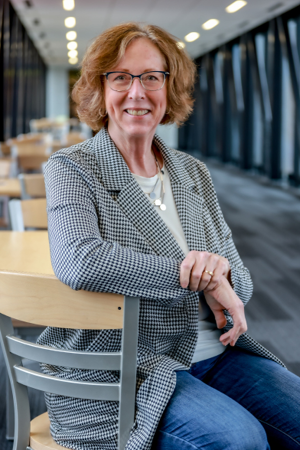
Associate Professor of Social Work & MSW Program Director
I never thought I would be a college instructor. I don’t really like being in front of people and would rather listen to someone else’s story than craft one to tell others. Several years ago, a friend of mine suggested I try teaching at the college level, and I told her that was an outrageous idea. The suggestion itched at the back of my mind, and on a whim, I applied to be an adjunct instructor. I was hired on the spot and immediately wondered if I had made a mistake. I didn’t know anything about teaching! (But I had successfully carried out lots and lots of training sessions.) I didn’t know anything about college students! (But I had been a social worker for all ages of folks for nearly 30 years, so knew people.) I didn’t know anything about developing a syllabus and course curriculum! (But I had lots of friends who were educators and eager to help.) I figured I would try it for one term, and if I hated it, would never do it again.
I was assigned to teach an accelerated course and was passionate about the topic. I loved diving deep into the concepts and developing intriguing ways to help students apply the ideas to their personal and professional lives. I loved seeing the looks on their faces when they had personal epiphanies. On the last night of this first experience of teaching, in a surprising response that has not happened again, the students gave me a round of applause and thanked me for being their teacher. I was hooked. I agreed to teach another term and, by this time, was aware of a full-time opening at Grand View to start the social work program.
Shortly after being offered the job, I headed toward an evening class and had a feeling wash over me: This is where I belong. My career to this point had been to support people as they worked to make positive changes in their lives. Teaching – especially with non-traditional students – was a way to continue to help people become the best versions of themselves and prepare to be the next generation of change agents.
I never thought I would be a college instructor. I really don’t like being in front of people, but teaching is different. Teaching is not being in front of people, but rather walking alongside as they grow and change and surprise themselves at what they can accomplish. In turn, I have been offered opportunities to grow and change and surprise myself at what I can do. Coming to Grand View was an outrageous idea – and it worked!
Laurie Butz
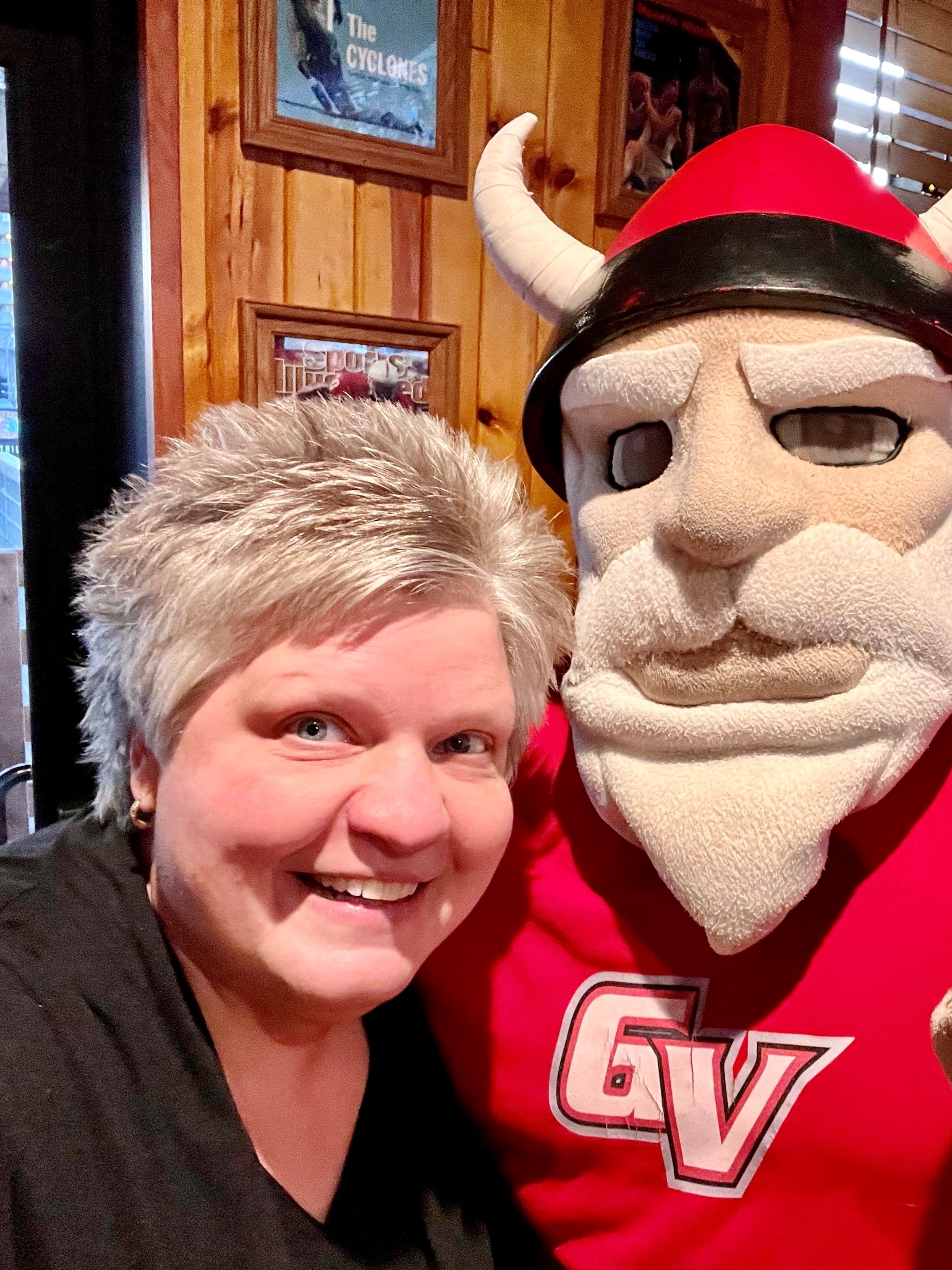
Completion Coach with GV Complete
The message was clear: “You will never amount to anything!”
“Here on earth, you will have many trials and sorrows. But take heart, because I have overcome the world.” John 16:33
Life was good as a kid … except for the moments it wasn’t. Oftentimes, I questioned God’s love for me. Why would a good and all-powerful God allow bad things to happen? It took me a long time to understand that although God allows bad things to happen, He doesn’t cause them. Bad things happen because the world is broken, because people are broken.
“All things work together for good for those who have been called according to His purpose.” Romans 8:28
God has both a plan and a purpose for each one of us. I believe wholeheartedly that I would not be the person I am today if not for the adversity I faced throughout my lifetime. It is because of my brokenness – not in spite of it – that God is able to use me for His good.
“As each has received a gift, use it to serve one another, as good stewards of God's varied grace.” 1 Peter 4:10
God has gifted me with an abundant love for children and a heart for service. Loving and serving God’s children is my vocation, my calling. For 27 years, I have been blessed to work with amazing kiddos, ages 4 to 22 (and beyond). Each one I have loved deeply and served to the best of my ability.
“The Lord will fulfill His purpose for me.” Psalm 138:8
It is a blessing that my vocation aligns with Grand View’s mission to engage, equip and empower students to fulfill their individual potential and serve society. To know that God actively works through me in positive and powerful ways – because of my brokenness – is both humbling and healing.
“Let your light shine before others, so that they may see your good works and give glory to your Father who is in Heaven.” Matthew 5:16
I realize now that worldly measurements of success are irrelevant. Whether or not I “amount to anything” – in my eyes or in anyone else’s – simply doesn’t matter. What matters is that my kiddos, here at Grand View and at home, feel so loved and empowered that they not only shine their own light into this world, but also spark the flame within others.
Dr. Erin Kim-Cho
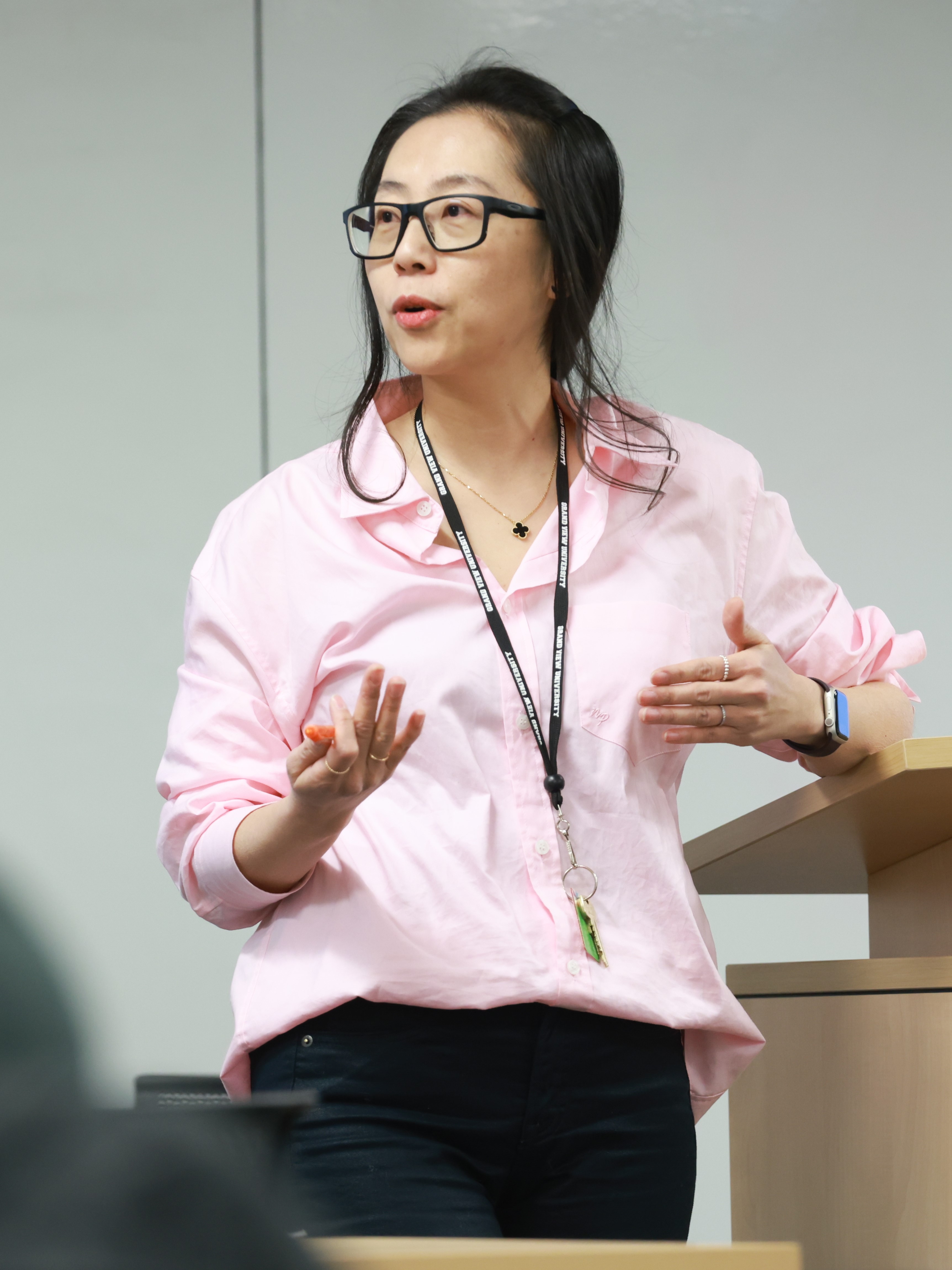
Assistant Professor of Communications
In my life, I look up to a family line of educators in Korea. My grandmother and both parents taught in public schools, and in third grade, my family moved to the U.S. so my father could pursue his doctoral degree. He would eventually go on to serve as vice minister of education in Korea when we returned home before I began high school.
The early years living in the U.S. were extremely difficult for my immigrant family. We had no access to healthcare because of the financial burden. I received free/reduced lunches at my elementary school and learned at a young age what it is like to feel “othered” by society, simply because of my appearance and culture. These experiences fostered a lifelong desire to make a difference in the lives of other immigrant families.
By 2002, I had returned to the U.S. independently, earned my PhD in Mass Communications by 2012, and began working as the Director of Communications for EMBARC, a refugee-led service agency, in 2020. In March, the COVID-19 pandemic hit suddenly and brutally: at a time when refugees and immigrants across Iowa needed critical public health information, we were forced to shut our doors.
Ninety-five percent of our clients across Iowa were considered essential workers in food processing and other service roles. If we were going to get people through this, we needed mass media. In under a month, I led the launch of a new crisis response website and daily news videos narrated in 13 languages and dialects. Accessible information was vital to keep people safe and connected.
The pandemic waned, but I never left behind the needs of immigrant and refugee communities. After accepting my faculty position at Grand View University, I continued community work with Refugees & Immigrant Voices in Action (RIVA, previously EMBARC) and the Korean-American Society of Iowa (KASI).
Supported by the Centers for Disease Control, I’ve led research on how public health outreach can be improved for refugees and immigrants living in rural communities. I served as Associate Director RIVA, supporting strategic planning and coordination of the organization’s programs, policy positions and external communications and now serve as Director of Research and Evaluation for the organization leading community-led research projects.
By combining my experiences as an academic and immigrant, I have uniquely mentored rising communications professionals (both from immigrant/refugee cultural communities, and the mainstream community), and encouraged them to explore better ways of serving our neighbors through media. Through it all, I hope to motivate the next generation of leaders – including my own three girls.
Leah Cole
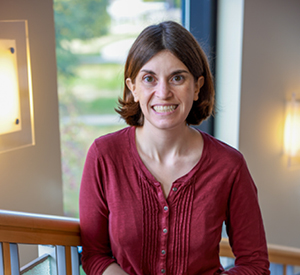
Field Experience Coordinator
I feel my vocation has always been to help other people to identify and pursue their own passions or vocations. My method for doing so has changed significantly over time, as helping preschoolers to pursue their passions (early in my career) differs significantly from assisting college students in fulfilling theirs. However, the goal has always been the same – that my students can see what they are capable of, find what they love doing, and that they might then continue to learn in that area.
I have felt called to teaching for as long as I can remember. I think I always believed that school should be a place where everyone feels like they belong and where they can be themselves. When I was in middle school, I began volunteering at a local theater in their day camp program. I knew that I wasn’t a great actor and had never even been in a play, but I loved the theater because it was a place where so many different kinds of people felt safe to be themselves. Ultimately, I wanted my classroom to be that kind of space for every student I served.
When I was in college, I remember the disillusionment I felt when I wasn’t as successful as I hoped to be in a practicum experience. I could tell that the student I was working with was no more excited about reading than he had been when I started. I think that feeling drove me to do better for future students. I recognized that I needed to learn more about my students' passions before I could ever begin to get them excited about academics. Lucky for me, the students with whom I work at Grand View tend to share my interest in education.
Reflecting on my years of engagement in teaching, I fondly remember every graduation of my preschoolers, the smiles on my students' faces when they learned new things, and the weekends I spent at school working on lesson plans. I remember the joy that families felt seeing their children’s achievements, and I feel grateful to have played even a tiny role in that success. Now, at Grand View, I am so privileged to be a part of the journey of future educators. Seeing their hard work lead to triumphs in the classroom, and the success of their students, is a tremendous gift to receive.
Katy Crowley
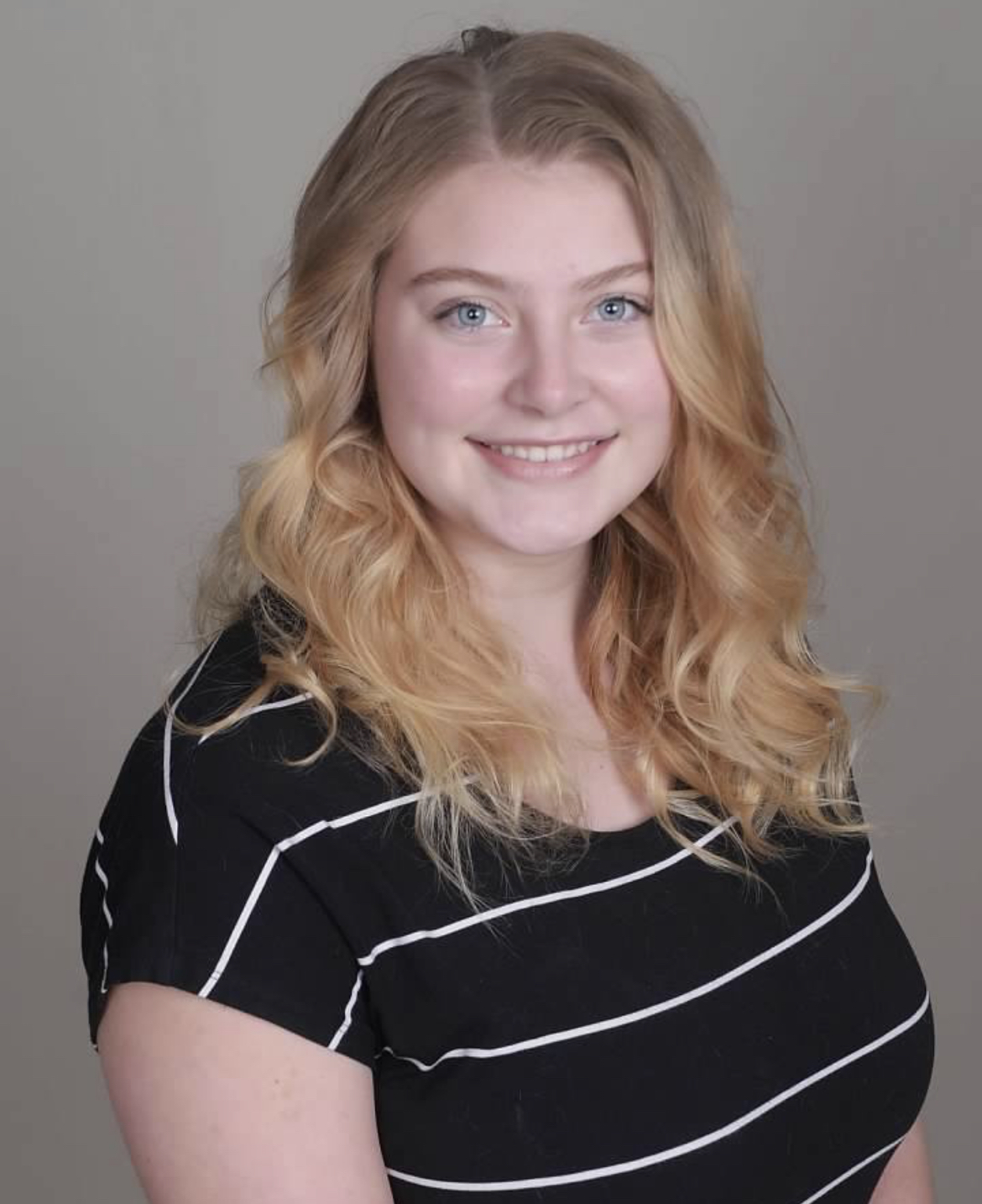
Alumna of Grand View University
“Don’t withhold good from someone who deserves it, when it is in your power to do so.” – Proverbs 3:27.
I learned this verse in Catholic school at a very young age. Even as a child, I always felt called to help others any way that I was able to. I remember contemplating who was considered “worthy” and “deserved” my help. At the age of 23, I believe that everyone is worthy of love and goodness. If I have the capacity to help someone, why wouldn’t I do so?
I felt a calling towards social work during my freshman year of high school when my family adopted my little sister. After sharing my plan to be a social worker with my dad, he informed me that being a social worker “is really depressing and doesn’t pay well.” While he was well-intentioned with this advice, it broke my heart. I then attempted to pursue other majors and career options. I tried to study business administration, management information systems, environmental science, and more. During these years, I felt disheartened, confused, and depressed. I dropped out of DMACC in the Fall of 2019.
When the pandemic hit, I decided that I wanted to get a job that gave back to the community. I started working as a caregiver for seniors and adults with disabilities. The job was wholesome and fulfilling, and I was good at working with others. After 6 months of caregiving, I received a promotion and worked full-time in the office. I worked with lots of Medicaid and Medicare users and noticed that they often were not able to receive the care that they needed due to restrictions placed by their providers. I also noticed that the employees that I was supervising struggled financially. Many of them didn’t have health insurance, easy access to transportation, or reliable daycare coverage. In many cases, they were too poor to even work.
I began advocating for our clients and employees. I was able to convince my boss to give employees a $0.50 raise and increase our starting pay. I also advocated for higher Medicaid reimbursement rates and tried to challenge state laws that prevented caregivers from best serving their clients. While the small changes that I was able to make felt good, it wasn’t enough. This was when I realized that I needed to increase my capacity to help others. I decided that going back to school and studying social work would be the best route for learning how to create systemic changes, even if it meant working in a low-paying field.
As a student, I use my skills in leadership, organization, and creativity to empower and uplift others. Not only do I feel called to do the advocacy work that I do, every fiber of my being tells me that I must do whatever I can to support other people. As my capacity and power to help others grows, so will the good work that I do.
Brigid Ernst
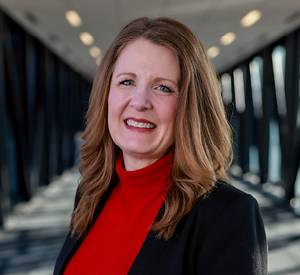
Student Success Program Director
My primary vocation is to help students learn and reach their full potential. I am especially passionate about populations of people, students specifically, who may feel marginalized or persecuted by others for their identities or who face challenges that may make them feel like they do not belong. I have come to realize this vocation through my work in higher education where I have had the opportunity to get to know students from a variety of backgrounds and identities. It is my goal to help these students feel seen and cared for as their authentic selves. The vocation of helping provide education and support for students who are in minoritized groups has impacted the direction of my professional path and the continued learning that I pursue through professional development.
I have always held education as a top priority that was instilled by my parents, and I began my path to working in education as a parent who wanted to be involved in my child's education and school life so they would value their own education. When my children were younger, I saw my main vocation as being their mother, dedicating time to their development and learning. As they entered grade school, I became more involved in their schools through PTA and volunteering in their classrooms. As they grew older and more independent, I began volunteering more in my community and stepping up in leadership roles. I also pursued finding a full-time job in higher education, where my passion grew for working with students and seeing them develop and mature grew even more.
My vocational calling towards leadership and service also lead me to pursue an elected position on the Southeast Polk School District Board of Directors. This position pairs my vocational calling to make sure equitable opportunities and supportive resources are available to all students, especially those in minoritized populations, and my vocation to lead in service to my community.
Dani Gronek
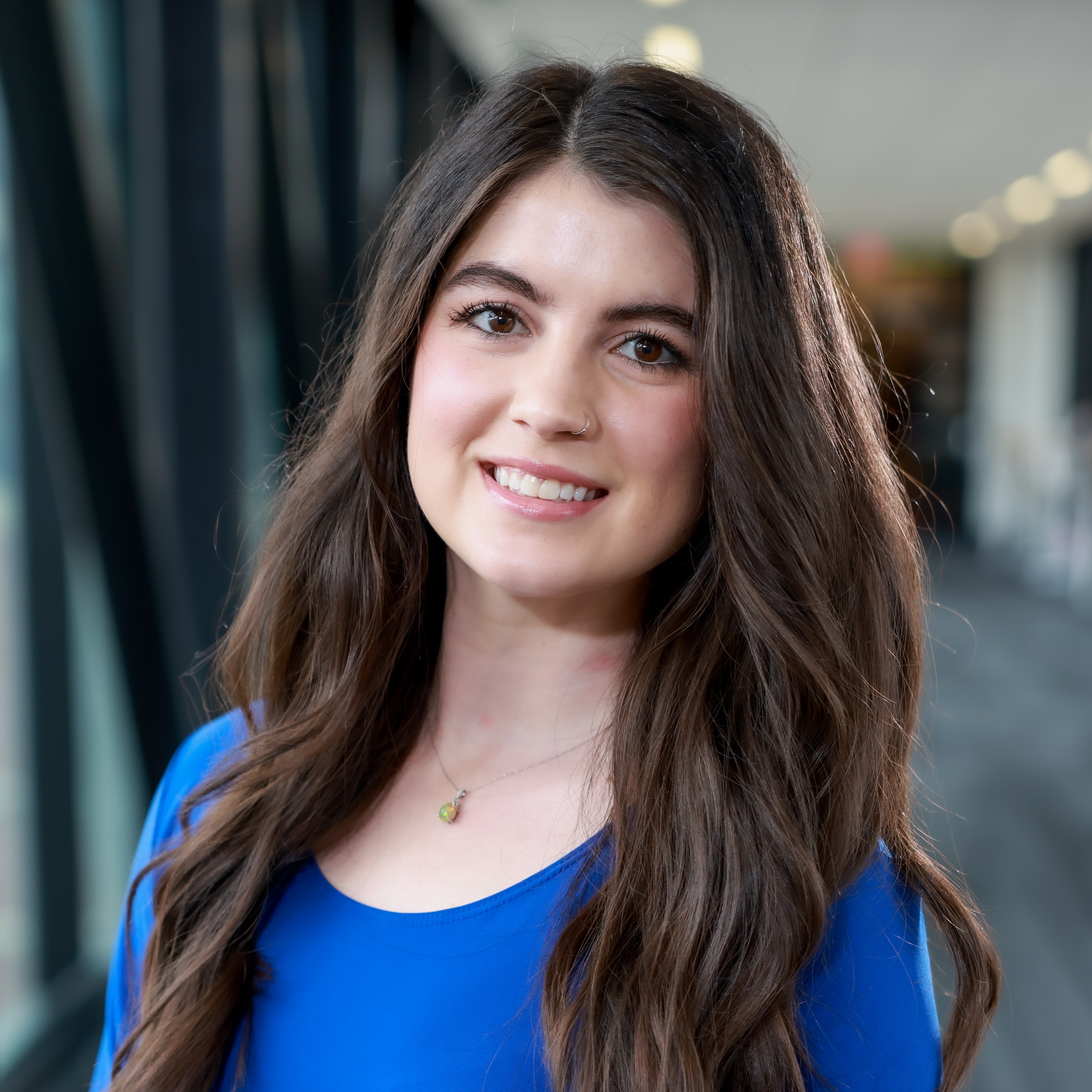
Completion Coach with GV Complete
My vocation is helping college students be successful and thrive in a higher education space. I discovered this was my calling through my own experiences as a first gen college student. I felt like everyone around me had the whole college thing figured out besides myself. I would go home every weekend and only really focus on school and not so much the other parts of the college experience. I was so stressed that my parents were helping me pay for school that I wanted to move off campus as soon as possible and graduate as soon as possible. I knew I wanted to help people but wasn't sure in what capacity. My education has always been very important to me, and I was a good student who loved to learn, so I decided I wanted to help students. I was going to be a high school counselor, but once I was doing my internship while having a graduate assistantship in the Learning Center advising students at UNI, I decided that college level was more my calling. Having been in this profession for 8 years now, I always say I could have definitely used a support like a Completion Coach when I was in school and would have enjoyed and gotten way more out of my college experience. Knowing I can make an impact on current students brings me the most joy.
Dr. Idit Hazan
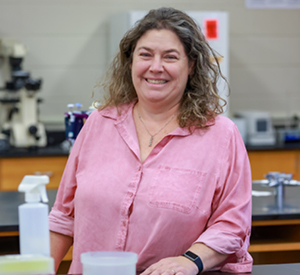
Professor of Biology
I've always been a self-proclaimed science geek, but I was always equally passionate about teaching. In high school, my math teacher asked top students to teach a lesson, and I was assigned matrices. I prepared the lesson, and it went so well that he remembered it for years, mentioning it whenever he saw my mom in town. During my undergraduate studies, instead of taking a waitressing or service job, I joined a program where college students taught math in rural high schools. These were talented students overlooked due to the school’s challenges with troubled students. Each week, I taught advanced topics in math and from that point, I was hooked.
While pursuing my PhD, I was required to TA for a year. What was meant to be a side task became a passion—I enjoyed it so much that I know my research suffered, and I knew teaching was my true calling. I also loved giving presentations in classes and seminars, something that most graduate students dislike.
As a professor at Grand View, teaching and curriculum development are my favorite roles. Although I’ve held administrative positions, like department chair, I always return to the classroom—it’s where my heart is. I love discussing fascinating topics, sparking students’ interest in science, and helping them discover their own passions. Watching students have “a-ha” moments, mastering new lab techniques, or hearing from graduates about the impact of my classes and mentoring is incredibly rewarding.
One day, while judging a science fair at Iowa State, a former student approached me to share how much my teaching meant to him. My 12-year-old son, who was with me, asked afterward, “How does it feel to have made a difference for so many people?” It feels great. Every day, I know I’m doing what I love and making a lasting impact. I'm living my vocation.
Dr. Rachelle K. Keck
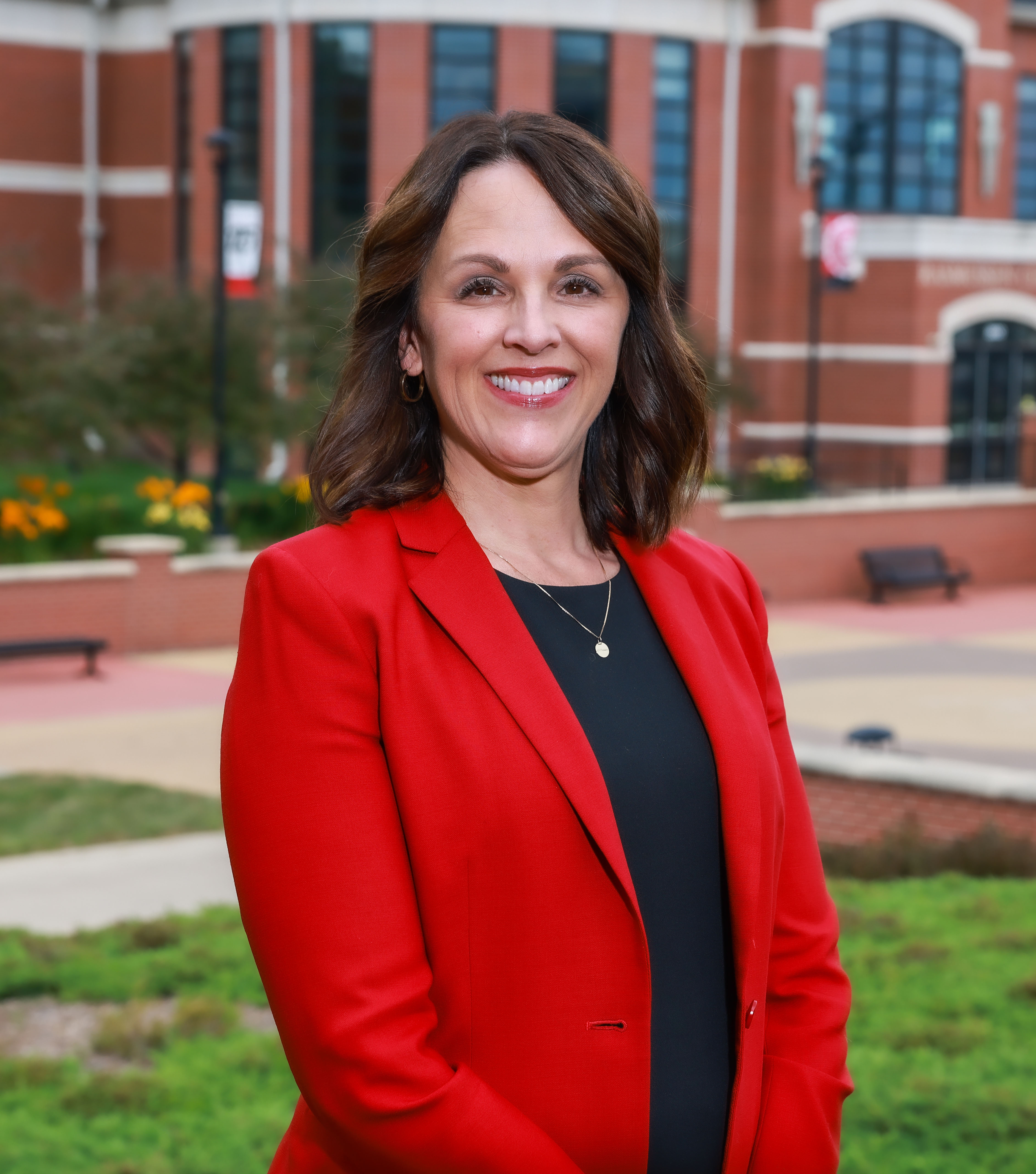
President of Grand View University
It’s not about you. Also, it’s about you.
“It’s not about you.” I still recall with crystal clarity the day I read the opening sentence to Rick Warren’s mega-bestselling book, “The Purpose Driven Life”. This book focuses on the following concepts: Who is God? Who am I? And why am I here?
Vocation, or purpose, answers the “why am I here?” question. According to Warren, your individual answer is informed by many areas of your life. He uses the acronym SHAPE to help discern purpose: Spiritual Gifts (what gifts did God give you to help you minister to others), Heart (what do you love), Abilities (what are you good at), Personality, and Experiences.
Since reading Warren’s book, I have completed much personal development work to help answer the “why am I here?” question for myself, and I will likely do so for the remainder of my life. As of today, my personal mission statement, or vocation statement, is as follows:
God is inviting me to help people discern and design personal and professional lives of purpose and meaning while continually honing mine.
After nearly 20 years as a successful attorney, God called me into higher education, a space where I could live into my vocation. “Being a college president is such a hard job, with so many pressures and near-constant stress. How do you do it?” is a question I am asked often. My answer? “When God calls you to your purpose and you say ‘yes’, it’s no longer work, it’s vocation.” My vocation brings me great joy - it’s why I’m here, for as long as I’m here.
Dr. Todd Knealing
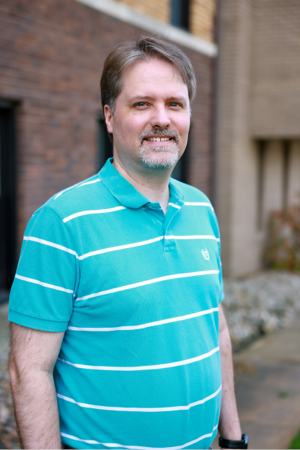
Academic Dean
During my fourth year as an Academic Dean, my institution experienced a shift in personnel, which led my President to transition Student Health Services (along with other Student Affairs departments) to report to me. At that time, the Student Health piece, specifically, did not seem like such a heavy lift, with a very capable and experienced Director of Health Services on hand. It was January 2020. That spring, our campus had the earliest spring break of anyone in our conference or our region. Our students had returned to campus just as the COVID-19 pandemic was ramping up. Other regional schools extended their spring breaks to buy themselves time to assess and plan. For us though, there was no time. Our students, staff, and faculty were all on campus. At that time, we all were working from very limited information and our university leadership team made the very difficult decision to pivot to online instruction within a one-week timespan and send all of our students home, initially for a limited period of time, but which turned into the rest of the spring semester.
Alongside the President, I was called on to speak with our faculty and staff, in-person, over email, collectively, individually, as everyone needed. It was disruptive and chaotic, and uncertainty ruled the day. My role, however, was one of calm—providing guidance, reassurance, empathy, and care. With faculty, in particular, I recruited a handful of colleagues to help provide a crash course in providing online instruction and working to set up courses appropriately; for many faculty, it would be their first time teaching online. They were worried about the virus, the school, their classes, and their students. I shared with all of them that I understood how difficult this was, promised them that I would support them through all of this, and gave them the grace to not be perfect, but to just do their best under these circumstances. To do their best, I asked them to care for themselves, care for their peers, and care for their students. I shared a very similar message with our staff as we sent everybody home. I received an outpouring of emotional, thankful emails from faculty and staff members following my parting words as we all went home. I knew I was in the right place, at the right time, and doing the right things.
Dr. Grant Knotts
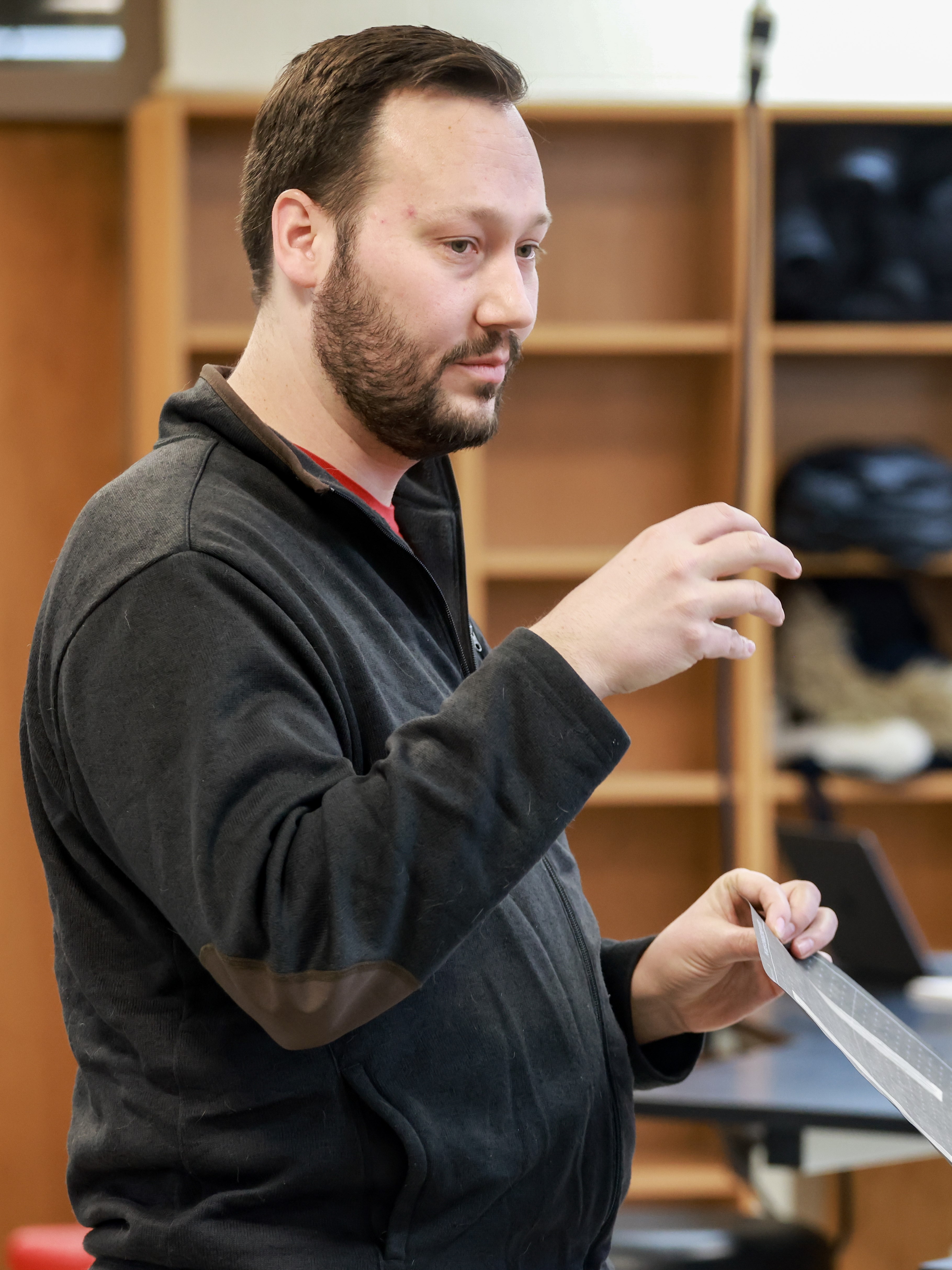
Associate Professor of Physics
Kids are often asked what they want to be when they grow up. My answer was basketball player, but this wasn’t really an option given my average height and below-average athleticism. My second answer was scientist and I am very happy settling for my “backup job.” It took a few failures along the way, but those setbacks proved valuable.
Failure one was getting cut from basketball during freshmen tryouts. My parents encouraged me to join the swim team instead, which inadvertently set me on a path to my current profession. The swim season went well and the coach asked if I wanted to be an assistant coach for a summer team. This opportunity helped me discover some skills and values I didn’t know I had.
Coaching swimming allowed me to practice patience, clarity of instruction, and helping motivate others to reach goals. It showed me that I like helping others find success. After every race, kids would ask, “What was my time?!” Seeing their faces after hearing they dropped two seconds was one of the best feelings I ever experienced. I still feel this way when a concept clicks for students in class and it’s just as rewarding now.
Coaching was also fun, and I determined that I wanted to have fun in whatever career I chose. It’s true I don’t get to wrestle a bunch of 8-year-olds or race overconfident 11-year-olds during a physics lab, but we still have fun. My students are excited to learn and have a good time, too. They even occasionally laugh at my physics jokes. I also get to work with passionate, encouraging, and helpful faculty and I am happy every day to come to such a supportive and fun workplace.
A second bit of fortune disguised as disappointment happened just before graduating from my doctoral program. I was struggling to find work and about to have my first child, so my wife and I moved in with her parents. I broadened my search to include teaching, which eventually lead to a full-time physics position at Grand View. I’m lucky I can use my love of science and math while working with excited, entertaining students and faculty. Even though this isn’t what I had in mind as a kid, I can’t imagine doing anything else.
Dr. Adriana J. LaGier
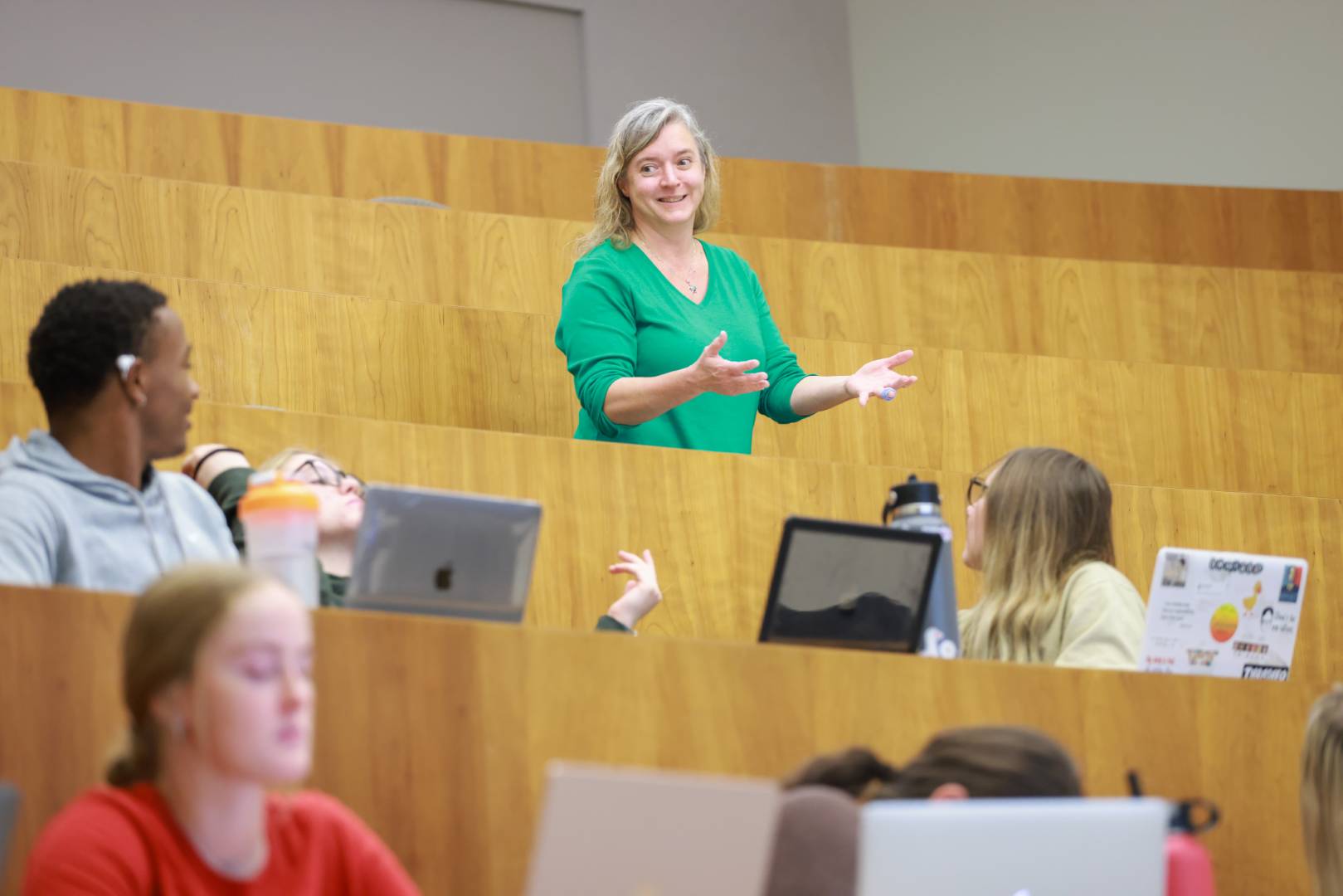
Professor of Biology
I went to a Catholic school from kindergarten to 7th grade. My family moved the summer before 8th grade, right when my friends and I would celebrate our confirmation. So, I didn’t get confirmed until I was in graduate school. One of the requirements of this sacrament was to complete a service project. The priest recommended that I use ‘my gifts,’ so I went to the local elementary school and tutored some kids in biology. This is when I got the teaching bug.
Society only works when everyone contributes something. My contribution (aka vocation) is to make sure the future is well stocked with the next generation of scientists. What do scientists do for society? They help society solve problems they know about and help society discover what they don’t know.
I think my vocation is to protect society’s scientific legacy by teaching the next generation. Basically, I maintain the pool of next great science geeks.
Haley Peeler
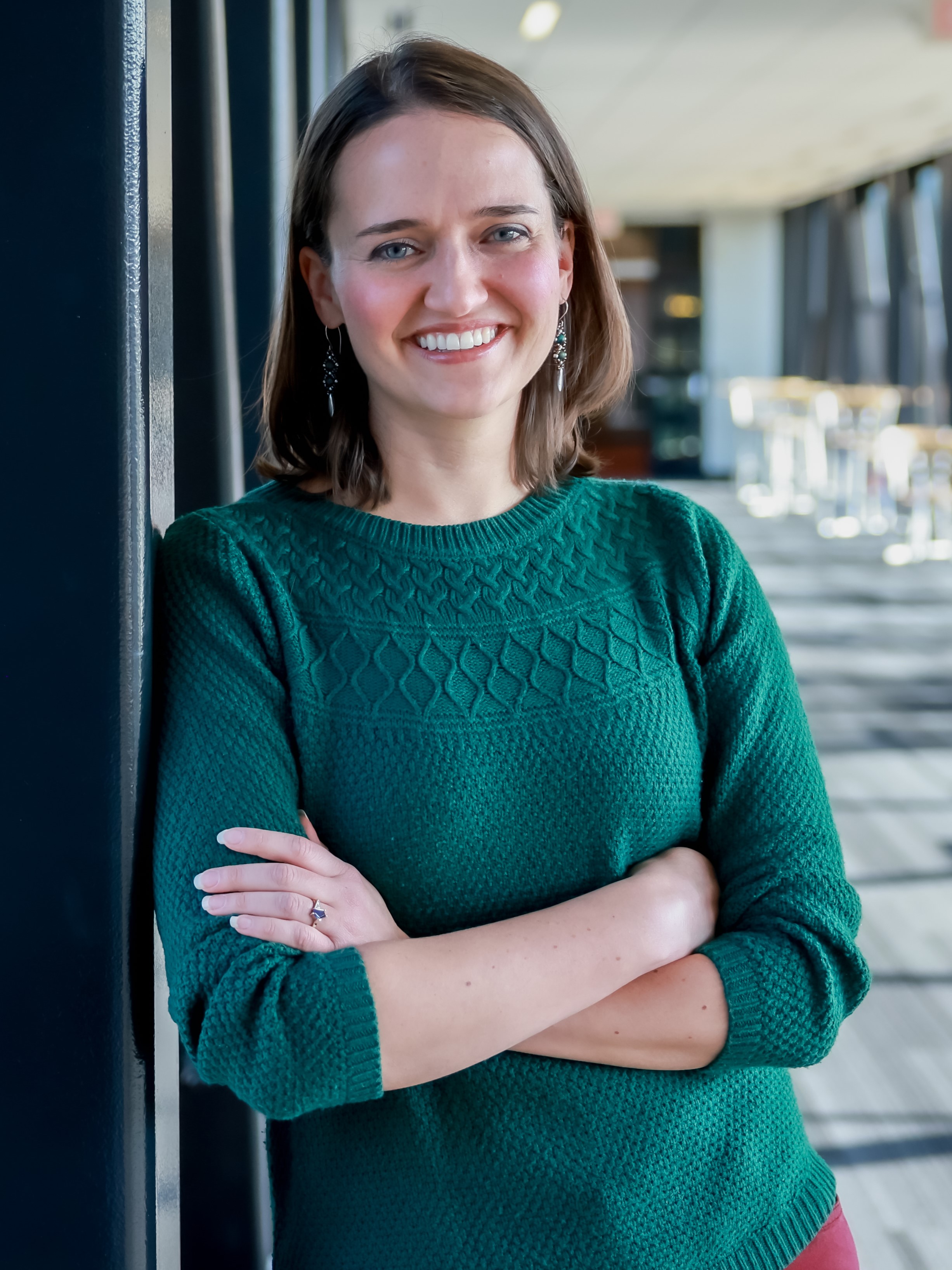
Director of the Career Center
Working in career services, I get a rush whenever I hear the words, "I got the job!" Knowing that I was part of someone’s success brings me joy and a sense of purpose. I consider myself fortunate to live my vocation daily, but this is not an accident; it is by design.
Growing up, I was encouraged to pursue my passions. I spent years honing my skills in the arts, even majoring in art and graphic design. Throughout college, I lived to create, and now, as the director of the Career Center, I am still creating. The mediums may differ, but the ideas are the same: research, experiment, layer work with meaning, ask for feedback, embrace vulnerability, edit frequently, and share confidently. During college, I was working toward my career goals of owning a photography business and becoming a graphic designer. After college, I was surprised to learn that I wasn’t happy doing either job. It took quitting my job and diving into a year of self-reflection to realize what I was missing: vocation. For my work life to feel purposeful, I needed to help others improve their lives; I needed human connection.
At Grand View, my strengths synergize to help meet the needs of the world. Whether I’m helping students gain skills to secure jobs and internships, assisting employers in finding employees, or leading the Career Center team, I get to live my purpose every day.
Alex Piedras
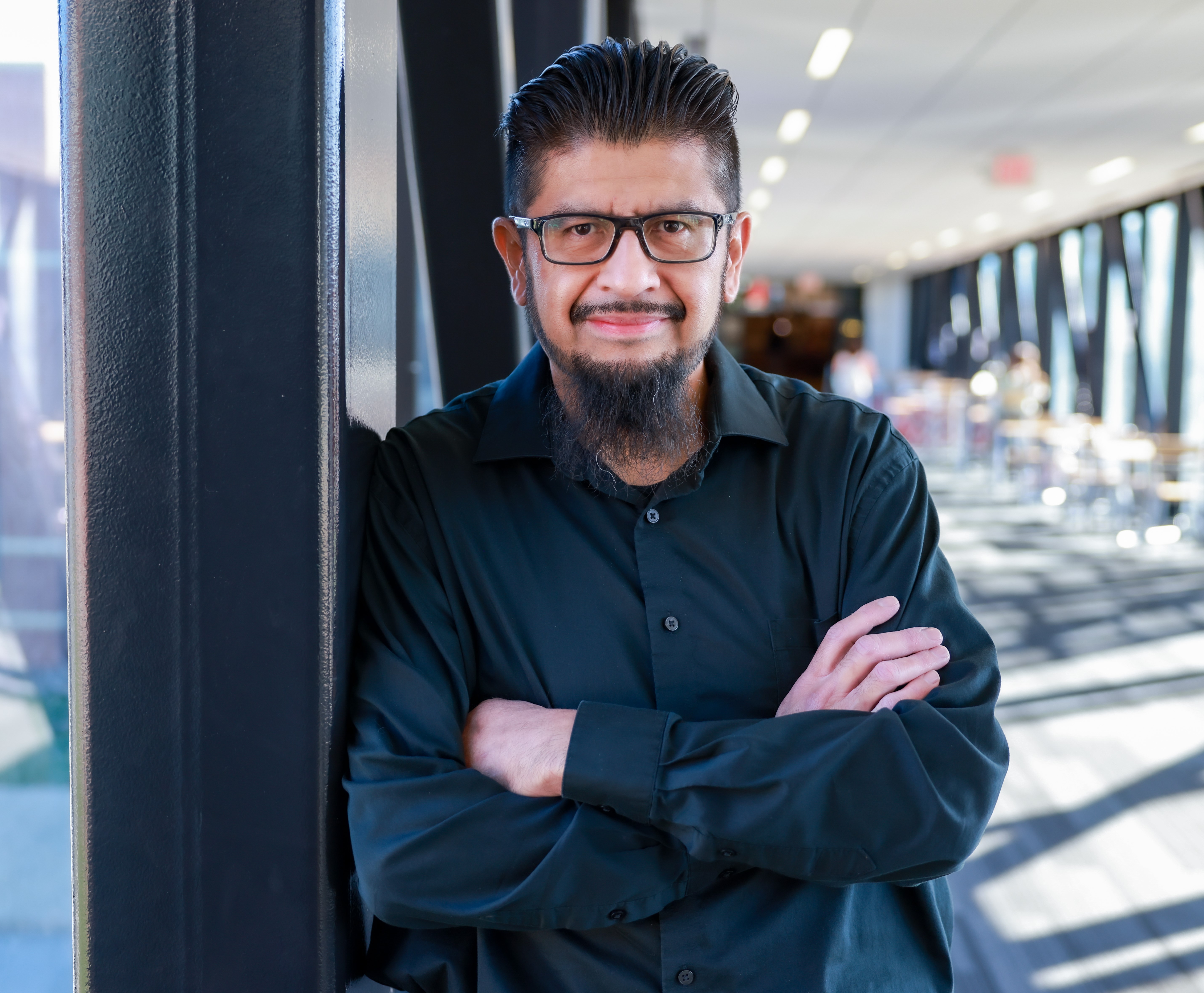
Director of Multicultural and Community Outreach & Completion Coach
I must have been 8-9 years old and I was at my grandmother’s house for the day. I remember I was playing in the courtyard full of avocado trees when I heard the knock on the door. It was an indigenous woman selling handmade blue tortillas in a huge canasto (round basket) on her back with a little baby in front in her rebozo (shawl). I was annoyed that I had to go get my abuelita to see if she wanted fresh tortillas.
When my grandmother saw the woman, she asked her to come in and sit under one of our avocado trees to take a break. She commanded me to get a glass of cold water from the kitchen and to assist the woman with lowering her canasto and unloading all the tortillas at the kitchen table; I did this with all the annoyance that a young mind can do. My abuelita proceeded to serve the woman some of our food. After a while, the woman thanked my grandmother for buying all the tortillas, for the food and for the glass of water, and she departed. She was happy that she could go back to her small village without having to keep selling her tortillas on a very hot day.
I remember questioning my grandmother as to why she had invited this stranger into her house, bought all the tortillas, (We definitely didn’t need all those tortillas!) and fed her. My abuelita looked at me, in her loving way, and told me that there are times when we must serve others to make their situation better, even if it is only for a brief moment. She said that doing this may encourage people to pay it forward. I got it, but I also didn’t get it. I had been introduced to servant leadership and vocation, without any of the fancy seminars or classes. I just didn’t realize it at the time.
I “got the lesson” when I started to manifest the behavior years later when I moved to the U.S. My vocation is to serve others, even if there are times that it is an inconvenience to me or my lifestyle. Serving others doesn’t have to be done in a fancy or flashy way. It can be done in a quiet way without asking others to give you recognition or props. It is doing the smallest and more unglamorous things to make sure others’ situation is improved, even for a brief moment.
I would invite others to consider serving, without seeking recognition. It is just doing simple things that can change a moment or a life. Sharing a smile during your walk across campus. A simple “Hi!” You can serve by opening a door or holding it open for someone. You can serve by supporting your GV community events. You can serve by volunteering during an event and doing even the most mundane of all duties - pushing a broom or taking the trash out.
Carlos Rodriguez Rosa
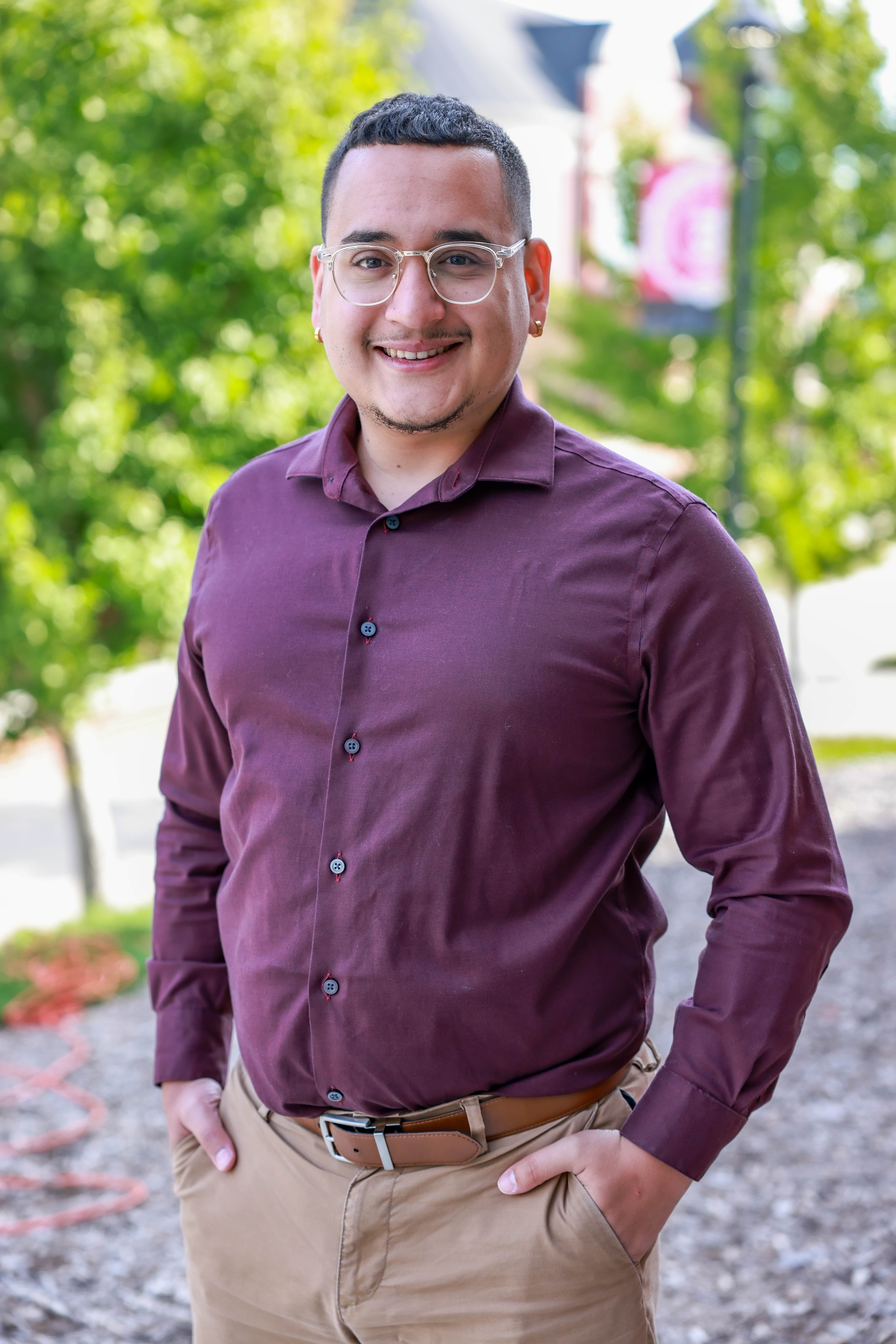
First-Year Multicultural Admissions Counselor & English Instructor
My vocation revealed itself in a collection of moments that I didn’t know were shaping me. It came in the aftermath of Hurricane Maria in Puerto Rico and the tremendous loss my family and I faced. However, it wasn’t the tragedy that made me change my perspective, it was the way the people in my orbit helped me heal. In the wake of my hurt, it was the realization that I needed people that changed me. We all need people.
I was given the help, grace, and chances I needed when I needed them most. I received kindness in my darkest moments. Dr. Bobbi Olson gave me an extension on a test, Alex Piedras opened his doors to me, and Grand View itself helped me financially. I was allowed to stumble forward until I could rebuild my life and become my best self. It was there, in that becoming, where I found my calling.
My vocation isn’t a concrete job or career, but a mission: to help others become their best selves. For me, it’s all about “paying it forward,” to give others what I was given. It manifests itself in many forms. As a teacher, I challenge my students to grow, but I also strive to extend kindness and be the kind of person I needed when I was in their shoes. As an admissions counselor, I work to help students find a path to higher education and have the chance to find their own vocation.
Finding a vocation is not a one-size-fits-all endeavor. Some people know what they want to do from the moment they take their first breath and others feel as if their purpose will never reveal itself. But sometimes you don’t know what you want until everything falls apart. Sometimes it doesn’t click until it all hits you like a bullet train, and it all finally makes sense. Take your time, trust yourself, and be open to change. The rest will follow.
Germain Sagbo
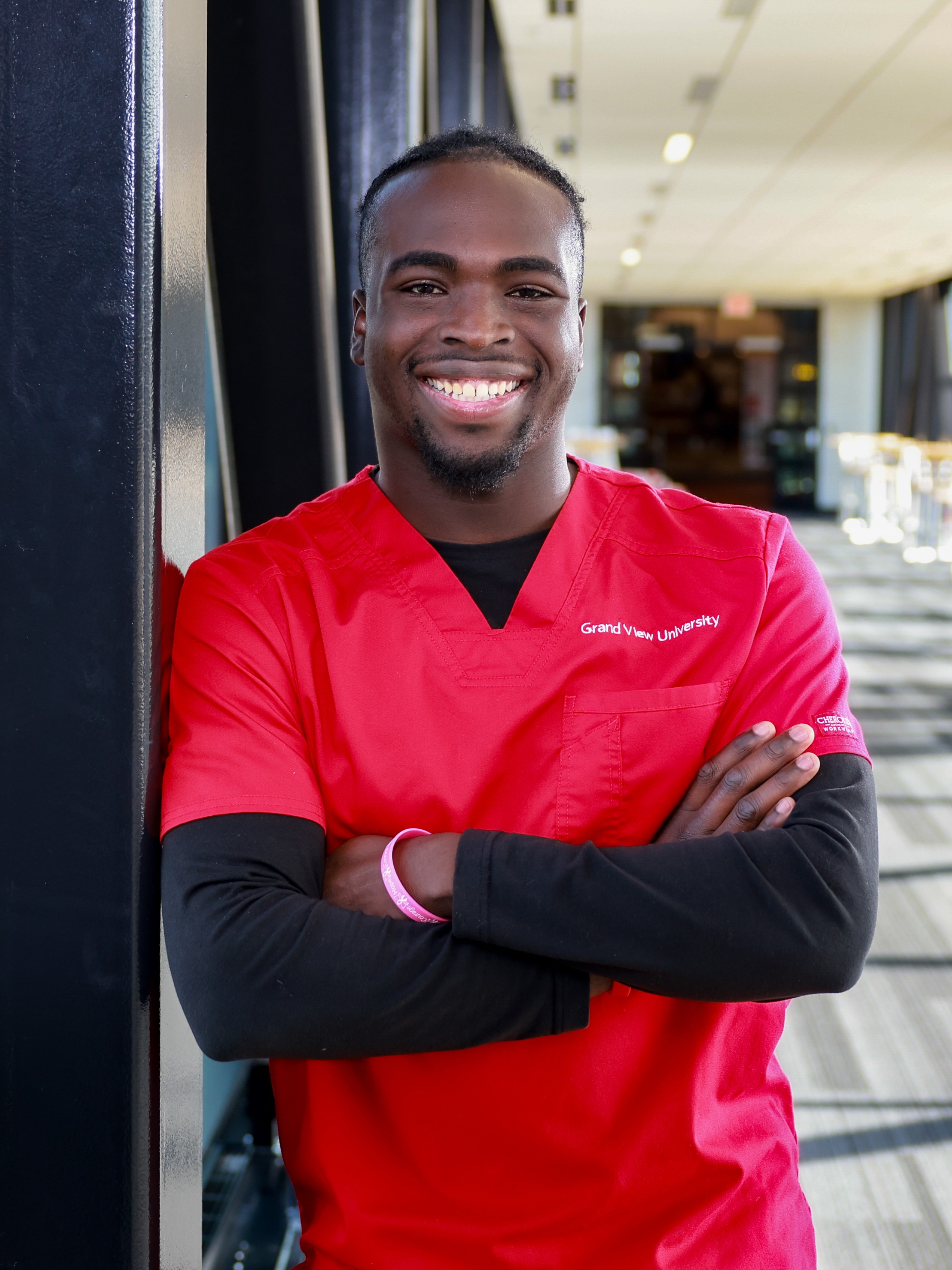
Alumnus of Grand View University
Six thousand sixty miles from here are my roots, the place my heart would first call home, a small third-world country called Togo. It’s a place where the people may not have much, but their hearts of full of love and faith.
I moved to the United States when I was four-years old, leaving behind my mother and not knowing it would be 13 years before I saw her again. On June 10, 2019, I found the first true “WHY” in life. My brother and I stepped foot on our homeland for the first time in 13 years. I could finally give my mom the hug I have longed to give for so many years. Joy filled the air and I praised the good Lord above for blessing us all every day until this day.
During that month in Togo there were many moments in which I realized how blessed I am. I saw my cousins sleep on the concrete floor outside in a little shed and being content with it. We hauled atop our heads gallons water from the well for us to use, and then heated it on a fire so that we could shower. The electricity went out every night, and I found it hard to sleep because it was so hot. I could go on and on. Despite this, however, I saw only grateful hearts and happiness. This was the life my family knew, yet I also knew how blessed I was in America. So, after this trip, my whole perspective on life changed.
They are the reason why I get up every day with a grateful heart, and why I try so hard in everything I do. I know the opportunity that I have, and I know they would do anything to be in my position. I have no choice but to keep going.
Rachel Seltz-Falk
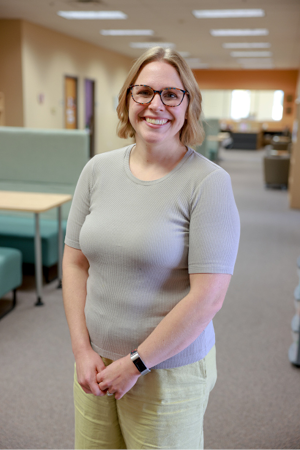
Professor of Practice of Nursing Level 1
As a nurse educator, I struggled with my vocation during the initial stages of COVID. I felt a sense of guilt, thinking that working comfortably from home meant I was abandoning my colleagues on the frontline. I was sending masks to my sister, who is an ICU nurse, and reading horror stories from my colleagues. I questioned whether I was truly contributing by avoiding the hazardous frontlines and not exposing myself to this unknown virus daily. It seemed to me that I wasn't a “real” nurse but “just” an educator.
While scrolling through social media, I stumbled upon a quote (though the exact words escape me) that struck a chord. The essence was that every time a former student positively impacted a patient's life, I, too, impacted that patient's life by having taught their nurse. This made me recognize the impact of my vocation as a nurse educator, even if I wasn't physically present at the bedside. Without nurse educators, the compassionate and caring nurses on the frontline wouldn't be there making a difference every day. We equip our students to be catalysts for change in healthcare, and I can confidently say that they are rising to the occasion in the current challenging environment.
By understanding that what I do matters, I realized I could contribute by nurturing students and guiding them to provide compassionate care. Even though I wasn't on the frontline, I could help shape the future nurses by instilling in them the values that make a difference in patients' lives.
Steve Snyder
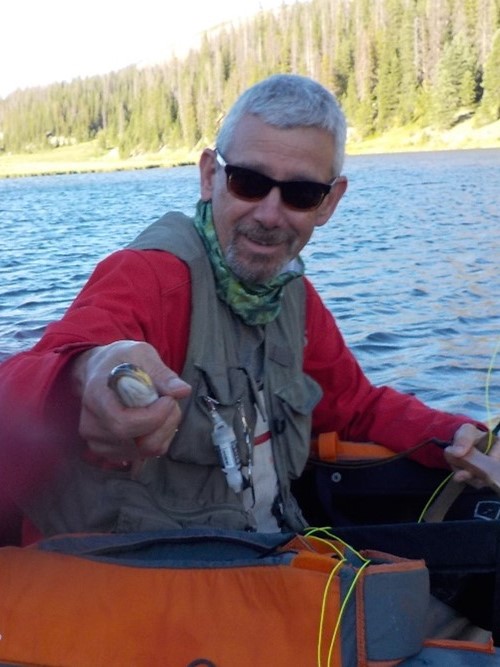
Professor of Humanities
I started reading a poem at the start of class a few years ago. It creates an interesting liminal space that’s neither official class time nor non-class time. At the top of the hour, I ask the students to put away phones and I pull up a poem on the smart-board. Then I read the poem and ask, "Well what do you guys think? Did this one work for you or not?" We’ll chat about the poem for a minute. Sometimes I'll point out something interesting about the language or meter, but not always.
One day, I shared Gerard Manly Hopkins' Pied Beauty, his prayer of gratitude for the particolored splendor of creation:
All things counter, original, spare, strange;
Whatever is fickle, freckled (who knows how?)
After reading it, I mentioned that how Hopkins said something was perhaps as interesting as what he said. Let's face it: “small pink dots lining the sides of German brown trout” is just not the same sonic or aesthetic experience as “rose-moles all in stipple upon trout that swim.”Those lovely long "Os" and the pop, pop, pop of "stipple upon" could not be more sensual or perfect praise of this world.
And as I was briefly losing myself in admiration of this line, I half-glanced up and saw a student on one side of the room staring at the poem on the board with that unself-conscious cocked head of wonder. Her mouth had fallen slightly open and almost in spite of herself she had begun to lean forward.
And that--right there--is what it’s all about. It wasn't part of the day's lesson plan and it sure didn't map to any of my course objectives. Truth be told, it won't even make her a better accountant, middle manager, or athletic trainer, but, heaven help me, seeing students grow suddenly curious about the something in this spare, strange, original world is what called me into this line of work.
Dr. Simone Sorteberg
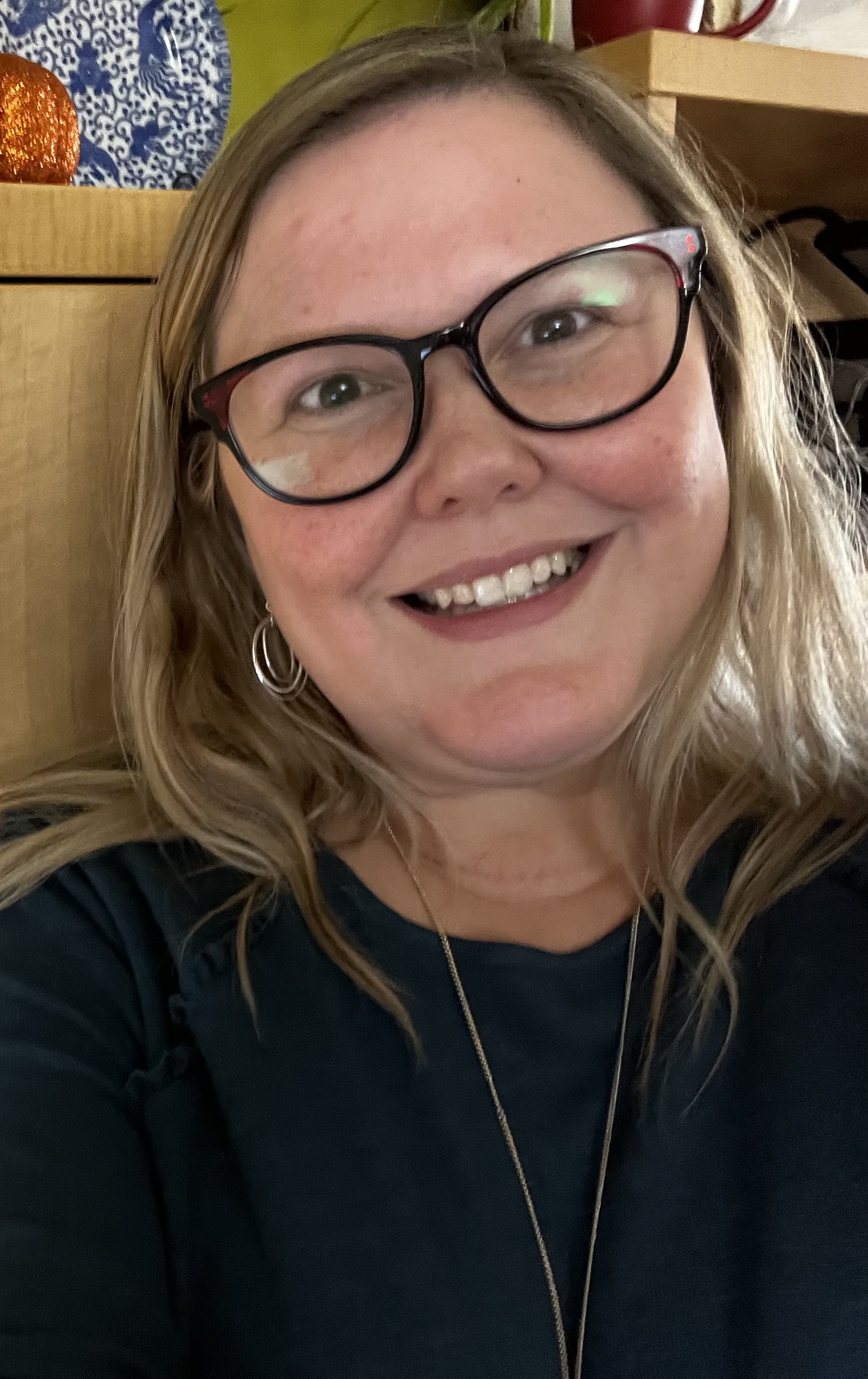
Associate Professor of Education & CETL Director
The moment I realized I had found my vocational calling was like a weight had been lifted from my shoulders, and pure joy filled my soul. I think learning my calling was substantial to me because I had fought it for so long. I always knew in the back of my head that I was called to education, but I fought that feeling fiercely. I knew that education was very challenging, as I had seen my mom teach for many years. I tried on different hats before committing to education. At first, I thought I would try law, but then I took my first law class, and I realized that I would be demoralized if I lost cases. Then, I tried primatology, but after completing an internship with chimpanzees, I realized that I did not want to be so far removed from humans. Yet, I was intending on graduate school in primatology after that internship, so I was a bit lost on what to do. Finally, I decided to listen to that little persistent nudge that I had felt for years toward teaching, and I went and visited Dr. Bruce Fehn at the University of Iowa to find out more about becoming a teacher. Really, this was a very spiritual experience for me, as when I left, it was with tears in my eyes. The dots had finally come together, and it just felt right. Finding your calling often requires many starts and stops and difficult decision making. You need to seek guidance from loved ones and those you trust. You may even pray about it, if that is a part of your life. For many, finding one’s calling can be messy, but keep persisting, and don’t give up.
Carrie Sponheim
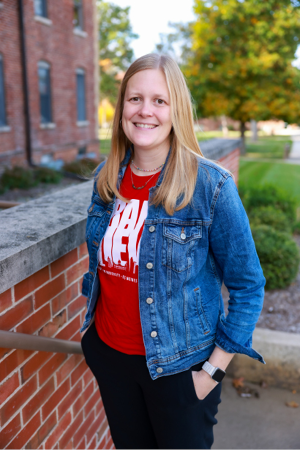
Director of Annual Giving
“When I grow up, I hope I create junk mail that people throw away upon opening,” said no one, ever. I certainly never did. I also never said: “I hope my job includes endless hours of looking at spreadsheets.” Yet here I am working as the Director of Annual Giving at Grand View, creating mailings to raise funds for GV students and building those mailings off endless spreadsheets. Some days I wonder how I got here, but every day I know I am exactly where I need to be.
I was never a student who knew where I was going or what I wanted to do in life. I never had an answer for the question: “What do you want to be when you grow up?” I graduated high school and went to college because it seemed like the next logical step. In college, it took me two full years to pick a major. I still had no idea what I wanted to do. I picked journalism and public relations because I could get it done in four years and thought the skills would fit in a lot of different professions. What did I want to do after graduation? No idea.
It started to change my sophomore year of college. I applied to be an orientation leader at my university. This was the first time I started to feel a purpose. I loved college, I loved my undergraduate institution, and I got to help people start their college journey. It felt right, so I kept going with it. I applied to be a campus tour guide, and I worked in New Student Programs until I graduated.
After graduation, I still wasn’t sure what I wanted to do, so I followed what I loved – helping people start their college journey. Was this my vocation, had I found my purpose? No, but I could feel it getting closer, so I kept going with it. I was hired as a Freshman Admissions Counselor at Grand View, and it was wonderful. I learned from a dynamic team and began to better understand higher education. One thing that stood out were all the financial barriers to access college for so many families. So, when an opening in GV’s Advancement Office became available, it made sense: help raise money, so more students can have more opportunities.
Is my job glamorous? No. Would I have ever imagined being a fundraiser for my career? Never. But I strongly believe in the power of education. Every year students come to Grand View and are given a chance because of the resources GV provides—and they excel! They exceed their own expectations and become alumni who make a positive impact in their community. There is power in higher education and if there can be access to a wider group of students to reach their highest potential, I will happily look at spreadsheets for hours.
Dr. Josh Woods
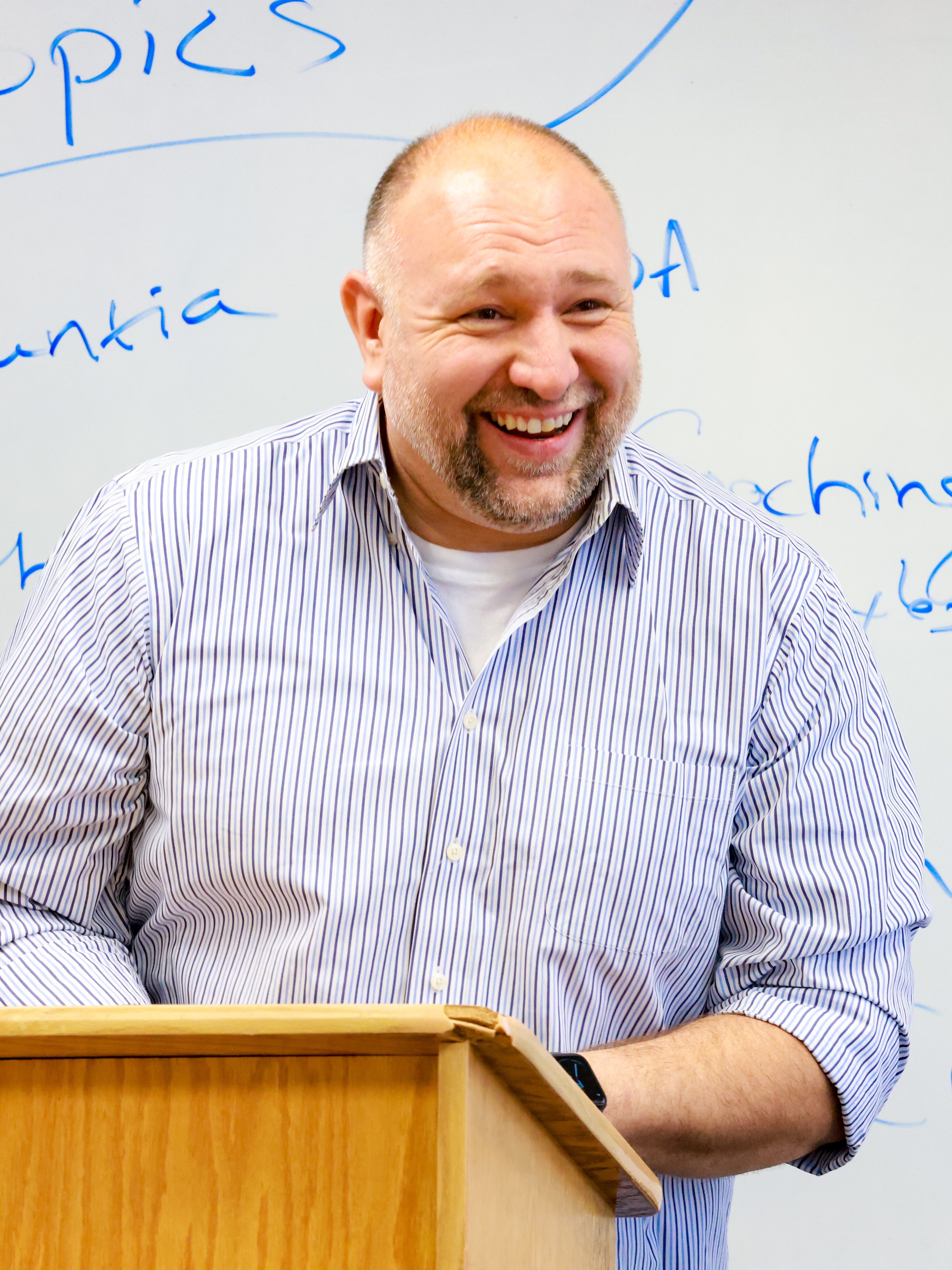
Professor of Psychology
Psychology is the scientific study of what it means to be human. We are like no other animal. We wear clothes, cook our food, and spend time in complex social situations. Why? We go to work or school, sit at stoplights, answer emails, read books, watch people pretending on tv and phone screens, and lay unconscious in our room for 1/3 of our life.
Why?
We get absorbed in theatrical productions, can be moved to tears by the clanging of instruments, and exercise for fun. Why? We stare at the stars, build rockets to the moon, and dive into the depth of the ocean even though we're not built for those environments. Why? Laughter and yawning are contagious and yet it’s impossible to tickle ourselves. We "love" athletes and celebrities who will never know our name. And we demand kindness from strangers while often giving impatience and judgment to those we don’t know.
Why? Why do we do these things?
Psychology is the only science bold enough to address all of these questions - from the big whys about the meaning of life to the smaller whys of how to be a good partner or parent. I chose to be a psychology professor because I wanted to spend the rest of my life exploring and understanding life’s great mysteries, hilarious conundrums, and ridiculous routines. What could be more fun than studying a science that wants to know why jokes draw tribal lines while pain and misery bring us together? I love learning about what makes us human and sharing it with others. I can’t think of anything more rewarding.
Lewis Yacinich, Jr.
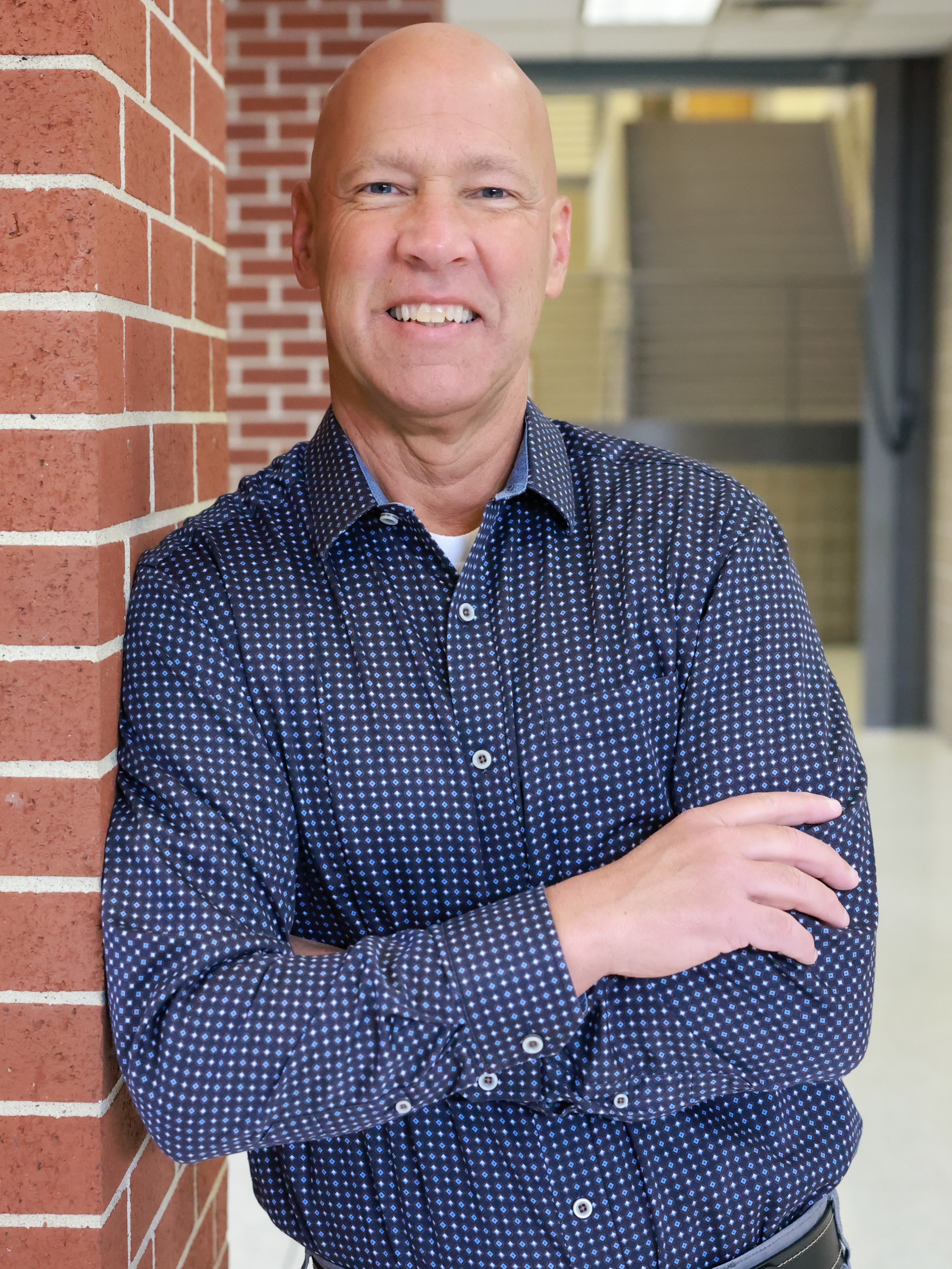
Head Softball Coach/Athletic Success Coordinator
My vocation? I have really not tried to decipher that word in my career. I still do not know what I want to do when I grow up. The path to my current position is not straight. It began with a passion for playing the game of men’s fastpitch softball. Then having daughters, becoming a high school assistant softball coach, coaching my daughters, becoming a high school head softball coach, and pursuing the Head Coach position here at Grand View. I have been on this path for 33 years. Along this path, I was not mindful that this was a vocation. It was a passion that was sometimes in the forefront and sometimes on the back burner.
There are so many aspects to coaching: servant leadership, counseling, travel agenting, recruiting, budgeting, PR representation, communication, activism and even being a disciplinarian. I had no idea this is part of a vocation. So many things we teach and expect of our players just serve them well in life:
HARD WORK. Sometimes it gets rewarded and sometimes not. It takes perseverance to prepare even though you can never know the outcome in any given situation.
CHOICE. All of our players and their families have a choice to join the Grand View University Softball program. If they have a passion for the game and want to get better each day, I invite them to come and compete for a position. And when they do choose to join us, there are a few expectations: eliminate drama and play tough.
My greatest joy is when I don’t have to give instruction in a game and our team has success. Players invested, gave great effort and achieved great success, and all without my intervention. It was their success. I also love it when players earn a degree, move on in their lives and pass on their passion for softball. It was their success (I get to start over the following season).
I do what I do to help young people become productive citizens. Now that I have given Vocation some thought, this is my Vocation.
Alec Zama
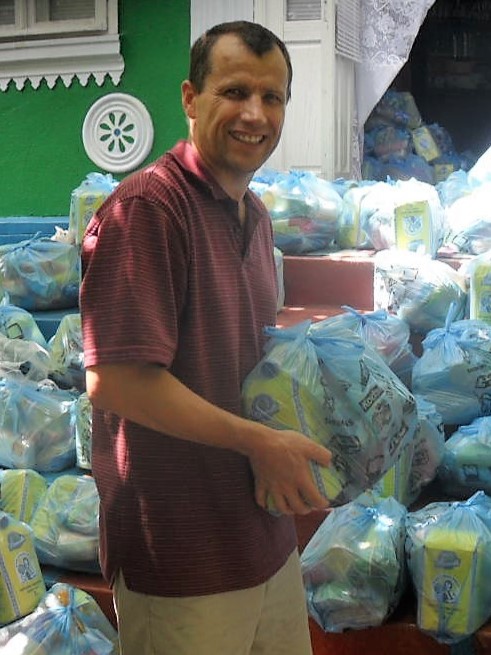
Professor of Business Administration (Economics)
When I think about my vocation, two aspects come to mind: learning and teaching, and serving others. As I reflect on my life journey, I can identify various elements related to these two aspects throughout my life. As long as I can remember, I liked learning new things. This love of learning translated into my passion for teaching, which I have enjoyed for more than 20 years.
The second aspect of my vocation is serving others. Since my childhood, my parents have always encouraged my brothers and I to help others. Having a sense of community while growing up instilled in me the importance of caring for others. Initially, most of my service to others focused on neighbors and relatives, but after moving to the US I understood that I could make a difference in the lives of others beyond those closest to me in my vicinity and in my heart. These experiences have influenced me to start Wings of Hope International, a non-profit organization, with the mission of serving the needy in Moldova. Through the efforts of those involved with Wings of Hope International, thousands of children have better learning conditions, and thousands of sick and elderly have a better standard of living.
My vocation has been influenced by many people who have been in my life from parents, brothers, wife, relatives, teachers, and many others who have contributed to the discovery of my vocation. I believe God has gifted me in these two areas and He placed me in my current position at Grand View where I am stimulated intellectually by constantly learning new things and by sharing my knowledge with my students and by serving others through various endeavors in Iowa and outside of the US.